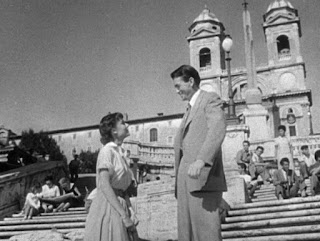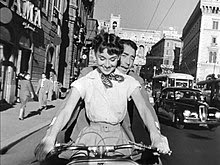In an unspecified period of time, probably centuries ago, there was a very poor girl called Jeom Soon. She was already a young adult, and would have an arranged marriage with the son of a wealthier family because she lived with her widow mother and they were about to lose their poor house and then the marriage would be a way for her mom to save her house.
And Jeom Soon went, she moved out to the house of her future husband. He was much younger than her and his father was nice, but her future mother-in-law, Lady Park, was terrible, treated her as a maid. Jeom Soon had to do all the heavy work of the household while Lady Park did nothing and she really maltreated and humiliated her future daughter-in-law. However, despite the difference of age, Jeom Soon got along very well with her future husband. Her future husband loved Jeom Soon very much and was very caring with her, which just worsened her situation because when Lady Park realized that, she thought that her daughter-in-law would steal her baby boy from her. And then her husband, the future father-in-law, tried to control the temper of his wife but it didn't work.
One day, Jeom Soon went outside to get some water and then she met by chance a suitor that she had in the past who begged her to leave the house of her in laws, that he would pay her debt with them but she refused even to talk to him. Jeom Soon told him directly that she was engaged to someone else and he was supposed to forget about her. Unfortunately to Jeom Soon, some other women of the neighborhood saw her talking with this guy, and they told Lady Park. Right Afterwards, Lady Park really beat Jeom Soon up with a whip. Some days after this humiliation, the girl got sick. And when Jeom Soon got sick, Lady Park sent her back to her mother because she didn't want to stay with that sick girl who would be unable to do anything in the household. However, Lady Park’s son, even though he was still a child, ended up following his future wife because he loved her very much. He wanted to stay with her. Then Lady Park arrived in Jeom Soon’s house, insulted her mother and took her son out of there by force.
After this event, Jeom Soon’s mother realized that she would be
forced to sell her house to pay her debts, and then they would have
to find somewhere else to live, maybe even on the streets. Lady
Park’s son begged her not to insult Jeom Soon’s mother, but it
didn't work out. Therefore, the engagement was over, because after
all, Lady Park brought Jeom Soon back home to her mom as if she was a
bag of potatoes. And she had a terrible temper, Jeom Soon’s mother
realized that her daugther was brutalized there and did not want Jeom
Soon to return anymore.
However, Lady Park’s son and his father did not want to accept it
because they loved their future wife and daughter-in-law, after all.
Thus, in order to change Lady Park’s mind, the son pretended he was
sick while his father tried to find a shaman who would tell his wife
that it would be better to bring Jeom Soon back home because she
would be precious to the family and if she did not do that, her baby
boy would pass away very soon. Of course that Lady Park got very
scared. It was her only child and she did not want to lose her son.
And then she discussed with her husband if it would be better to
bring Jeom Soon back or not.
In the meantime, Jeom Soon and her mom sold their house and moved somewhere else. They were totally unaware that Lady Park wanted Jeom Soon back, because both families lived in villages that were relatively distant from each other. At the same time, the Lady Park genuinely regretted her actions and wanted Jeom Soon back, realizing that she was caring with her son, she did all the housework, she was never a bad person, and she tried to please her in every wat. But then, of course, Jeom Soon and her mom had already left home with their belongings. But they left on foot, so it would not be too hard to find them.
At first, while Lady Park tried to find Jeom Soon and her mother, they went to the wrong way, but after a while they got to find the girl and her mom. Then, Lady Park talked to them. Jeom Soon’s mother was extremely insulted of the treatment that Jeom Soon had, because she knew that her daughter was beaten up, humiliated, her work was exploited, and of course that she did not want her daughter to return. However, Jeom Soon only had problems with the mother-in-law, but she missed her father-in-law and her future husband. Despite the big difference of age, there was genuine love and affection between them both.
Thus, when Jeom Soon realized that her in-laws wanted her back,
the girl wanted to return. She understood that Lady Park was doing
the best she could, then she convinced her mother to let her go. And
this is what exactly happened. As Jeom Soon’s mother was ill, she
could not leave her mother behind. So, Lady Park invited her mother
to live with them too. At first, the mother refused because she
thought she would be exploited and treated as a maid too. But the
Lady Park convinced her otherwise, claiming that she regretted
everything she did, that she had disgraceful attitudes before.
Therefore, It would not happen again. Then, Jeom Soon’s mother
was convinced to go. After all, both mother and daughter did not have
anywhere else to go anyway. So they went to Lady Park’s home.
Furthermore, in the very end of the film we can see that the boy, although still a child, got to follow his mother and take his future wife home. Jeom Soon was very touched by this act. And then they were happily together home. It seems that after all this mess, nothing bad would happen again.
This film provides valuable insight about how life was like in ancient Asia. We do not know exactly the time frame when this plot happened, but we can see how people lived by doing manual work, how they related to each other, the clothes they wore. So it's a really nice time machine. Those old Korean films, they are important to understand the current K-dramas. It's a good cultural experience.
If you don't get to find the films in DVD or online, you can
find some writings about them in blogs, in websites. So it's a part
of cinema history that is really important to know, but at the same
time it's so underrated. It is nice to see how love can happen, even
though there are bad circumstances and how poverty can crush people
so much, but at the same time we can see that things can have a good
and positive outcome.













%20(1929)%20039.jpg)
%20(1929)%20143.jpg)
%20(1929)%20252.jpg)
%20(1929)%20427.jpg)








